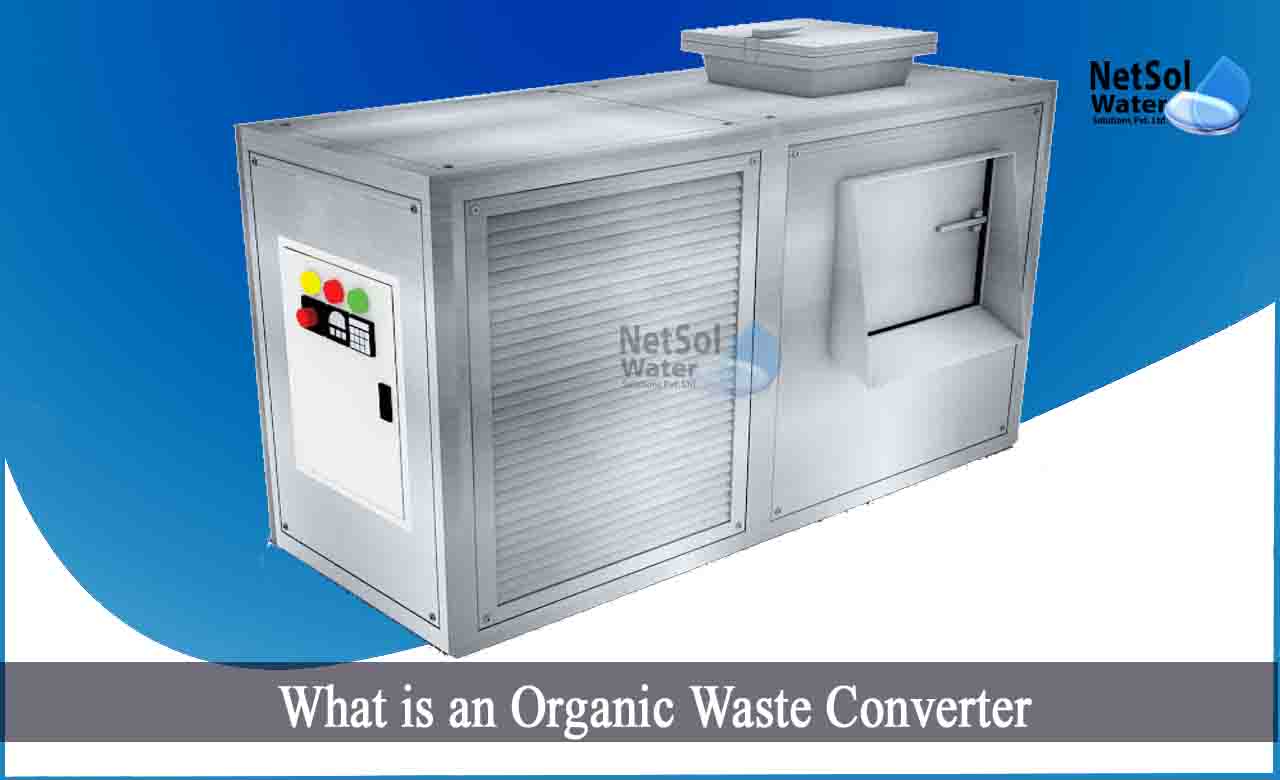What is an Organic Waste Converter?
Organic waste converters are machines that turn organic waste including vegetable waste, animal waste, bakery waste, leaves, fruits and fruit skins, and flowers into useful compost that may be utilized in organic farming. Composters are another name for converters. Some converters are capable of treating and recycling both solid and liquid organic waste.
Converters are self-contained devices that may perform a number of tasks such as waste separation, shredding or crushing, filtering, dewatering, mixing, and curing. Because of the vast range of functionalities accessible on converters, the technology has found use in a number of industries that create organic waste.
Applications of Organic waste converters
Organic waste converter technology benefits residential estates, restaurants, food canteens, shopping malls, educational institutes, municipal corporations, vegetable markets, fish markets, military bases, naval bases, etc.
Features of Organic waste converters
· It is entirely automated and simple to use.
· It is completely quiet and odourless.
· It is long-lasting.
· It is high in nitrogen.
· Operating and maintenance expenditures are low.
Requirements of Organic Waste management
• The gear box grease must be replenished every 5 years.
• Activated carbons must be replaced every 5 years.
• The machine comes with complete preventative maintenance instructions.
• If necessary, the provider agrees to run the equipment on mutually agreed terms and circumstances, for at least one month.
Types of organic waste that needs to be converted
• Kitchen food waste
• Vegetable waste
• Fruits and fruit peels
• Meat, cooked or raw
• Bones and eggshells
• Bakery/bread goods
• All leftover cooked meals
• Leaf-sweeping the streets
• Tree branches and leaves (bigger branches should be broken into small pieces)
• Flowers
Advantages of Organic Waste Converter
• Its composting process is on-going.
• It has a composting capacity of 50 kg per day, is closed on all sides and is pathogen-free.
• It features a built-in curing mechanism.
• It requires less manpower and may be operated by untrained persons.
• Its running costs are around half that of other types of converters.
• There is no need for additional handling after the waste is dumped in it.
• Its enclosure aids in heat retention.
• An odour filter is offered as an optional device.
• The composting process is monitored and managed electronically.
• It requires less space because all operations take place in the same unit.
• The temperature within the unit is high, which aids in the killing of microorganisms.
Conclusion
Netsol Water offers the best organic waste converters which come with environmental friendly technology. This technology is a viable alternative to typical organic waste disposal methods such as landfill dumping and burning.
Converters minimize pollutants while also producing a beneficial end product in the form of compost. The composting techniques and capacities of converters differ. Some may have a high-tech automated shredder that may also be utilized as an accessory with various organic waste converter types. It shreds and dewaters organic waste, eventually reducing its volume by 70% to 80%. These generate practically dry, odourless organic waste that may be composted further in an organic waste converter.
Netsol Water is Greater Noida-based leading water & wastewater treatment plant manufacturer. We are industry's most demanding company based on client review and work quality. We are known as best commercial RO plant manufacturers, industrial RO plant manufacturer, sewage treatment plant manufacturer, Water Softener Plant Manufacturers and effluent treatment plant manufacturers. Apart from this 24x7 customer support is our USP. Call on +91-9650608473, or write us at enquiry@netsolwater.com for any support, inquiry or product-purchase related query.



